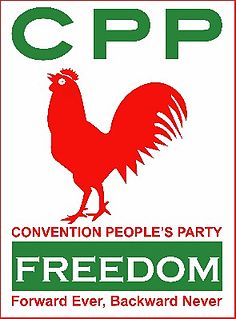
The Constitution of the Republic of China is the supreme law in the Republic of China. It was ratified by the Kuomintang led National Constituent Assembly session on December 25, 1946 in Nanking and adopted on December 25, 1947. Though the Constitution was intended for the whole China, it has never extensively nor effectively been implemented in any territory. In response to the outbreak of Chinese Civil War by the time of the constitution's promulgation, the newly elected National Assembly soon ratified the Temporary Provisions against the Communist Rebellion on May 10, 1948. The Temporary Provisions symbols the country's entering into the state of emergency and granted the Kuomintang led government of the Republic of China extra-constitutional powers.
A constitutional amendment is a modification of the constitution of a polity, organization or other type of entity. Amendments are often interwoven into the relevant sections of an existing constitution, directly altering the text. Conversely, they can be appended to the constitution as supplemental additions (codicils), thus changing the frame of government without altering the existing text of the document.

France is a representative democracy. Public officials in the legislative and executive branches are either elected by the citizens or appointed by elected officials. Referendums may also be called to consult the French citizenry directly on a particular question, especially one which concerns amendment to the Constitution.
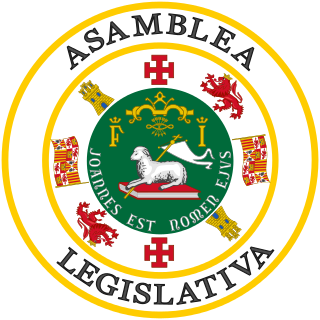
The Legislative Assembly of Puerto Rico is the territorial legislature of the Commonwealth of Puerto Rico, responsible for the legislative branch of the government of Puerto Rico. The Assembly is a bicameral legislature consisting of an upper house, the Senate normally composed by 27 senators, and the lower house, the House of Representatives normally composed by 51 representatives. Eleven members of each house are elected at-large rather than from a specific legislative district with all members being elected for a four-year term without term limits.
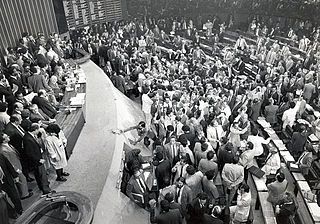
During its independent political history, Brazil has had seven constitutions. The most recent was ratified on October 5, 1988.

Elections in Benin take place within the framework of a multi-party democracy and a presidential system. Both the President and the National Assembly are directly elected by voters, with elections organised by the Autonomous National Electoral Commission (CENA).

Elections in Rwanda take place within the framework of a multi-party democracy and a presidential system. The President and majority of members of the Chamber of Deputies are directly elected, whilst the Senate is indirectly elected and partly appointed.

The Parliament of Ghana is the legislative body of the Government of Ghana.

Elections for the Legislative Assembly were held in the Gold Coast on 17 July 1956. They were won by Kwame Nkrumah's Convention People's Party, which took 71 of the 104 seats.

A constitutional referendum was held in Ghana on 27 April 1960. The main issue was a change in the country's status from a constitutional monarchy with Elizabeth II as head of state, to a republic with a presidential system of government.
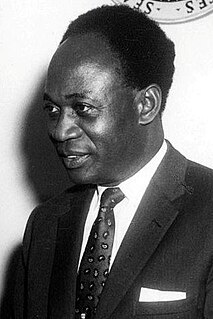
Presidential elections were held for the first time in Ghana on 27 April 1960. The elections were held alongside a referendum on creating an executive presidency. The winner of the election would become the country's first President if the new republican constitution was passed.

Parliamentary elections were held in Ghana in 1965. As the country was a one-party state at the time, no parties except President Kwame Nkrumah's Convention People's Party (CPP), were allowed to participate.

The Constitutional Court of Georgia is the constitutional court of Georgia, the country's judicial body of constitutional review, having the greatest significance with the view of securing constitutional provisions and separation of powers, and protecting human rights and freedoms.

The Constitution of the Republic of the Union of Myanmar is the supreme law of Myanmar. Myanmar's first constitution adopted by constituent assembly was enacted for the Union of Burma in 1947. After the 1962 Burmese coup d'état, a second constitution was enacted in 1974. The country has been ruled by military juntas for most of its history.

Since Kenya gained independence in 1963 the constitution has been altered many times. During the early years of Kenya's existence the constitution was abused by the president and the ruling party to gain and consolidate power through the creation of a single-party state, the abolition of secret ballots and through increasing the power and prestige that comes with being the president. However, more recently the constitution has been used to make Kenya more democratic through the addition of a Prime Minister, and two Deputy Prime Ministers and the abolition of section 2A of the constitution, which had prevented Kenya from being a multi-party state was now repealed.

A constitutional referendum was held in Kyrgyzstan on 27 June 2010 to reduce presidential powers and strengthen democracy in the wake of the riots earlier in the year. Parliamentary elections followed on 10 October 2010.

Presidential elections were held in the Democratic Republic of the Congo on 1 November 1970. The only candidate was Joseph Mobutu, who had taken power in a military coup five years earlier. The elections took the format of a "yes" or "no" vote for Mobutu's candidacy, with the results showing he won more "yes" votes than the number of registered voters, even though voting was not compulsory.
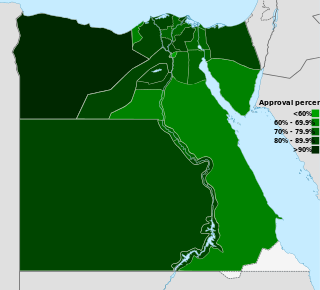
A constitutional referendum was held in Egypt on 19 March 2011, following the 2011 Egyptian revolution. More than 14 million (77%) were in favour, while around 4 million (23%) opposed the changes; 41% of 45 million eligible voters turned out to vote.

A constitutional referendum was held in Uruguay on 30 November 1980. Although the new constitution drafted by the military regime was rejected by voters, some of its proposals were implemented anyway.
A referendum is a direct vote in which an entire electorate is asked to either accept or reject a particular proposal. This article summarises referendum laws and practice in various countries.



